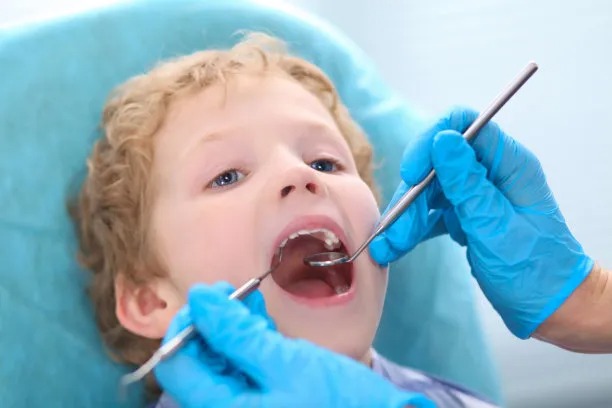Summary: Periodontal disease, a common but serious gum infection, can lead to tooth loss and other health issues if left untreated. Understanding its causes is vital for prevention and effective management. This article delves into the primary causes of periodontal disease, its symptoms that can alert individuals to seek help, and a range of effective treatment options to maintain healthy gums and teeth. Addressing both the clinical and lifestyle aspects, this piece equips readers with essential knowledge for better oral health.
1. Understanding the Causes of Periodontal Disease

Periodontal disease primarily arises from the buildup of plaque, a sticky film of bacteria that forms on teeth. When plaque is not adequately removed through brushing and flossing, it can harden into tartar, which is more difficult to remove. This accumulation can lead to inflammation of the gums, known as gingivitis, which is often the precursor to more severe periodontal conditions.
Another significant factor contributing to periodontal disease is smoking or tobacco use. Tobacco products degrade oral health and reduce blood flow to the gums, impairing healing. Smokers are more susceptible to gum disease than non-smokers, emphasizing the need for cessation as part of periodontal health strategies.
Genetic predisposition can also influence the risk of developing periodontal disease. Some individuals may have a genetic makeup that makes them more vulnerable to infections or inflammation in the gums, suggesting that family history should be a consideration in periodontal health assessments.
2. Recognizing the Symptoms of Periodontal Disease
Identifying the symptoms of periodontal disease early is crucial for successful intervention. Common signs include swollen or bleeding gums, especially during brushing or flossing. These symptoms indicate inflammation and may suggest the early stages of gum disease.
Bad breath, or halitosis, can also be a warning sign of periodontal issues. Persistent bad breath that does not improve with good hygiene may signal an underlying infection that requires dental attention.
Another symptom includes the presence of receding gums, which can lead to tooth sensitivity as the tooth roots become exposed. Loose teeth are an advanced indicator of periodontal disease and should be evaluated immediately by a dental professional. Prompt recognition of these symptoms can lead to more effective treatment and less invasive intervention.
3. Effective Treatment Options for Periodontal Health
Treatment for periodontal disease varies based on its severity. In the early stages, professional dental cleanings may be sufficient to remove plaque and tartar buildup. Regular visits to the dentist for cleanings can help prevent the onset of severe gum disease.
For more advanced cases, scaling and root planing may be necessary. This deep-cleaning technique involves the removal of tartar from above and below the gum line and smoothing the tooth roots to help gums reattach to the teeth.
In severe cases, surgical interventions may be required. Procedures such as flap surgery or bone grafts may restore the supportive structures of the teeth and gums. It is crucial for individuals to discuss treatment options with a dentist to determine the best course of action tailored to their needs.
4. Lifestyle Changes for Healthy Gums and Teeth
Beyond professional treatments, individuals can make lifestyle changes that significantly contribute to periodontal health. Maintaining a consistent oral hygiene routine that includes brushing twice a day and flossing daily helps minimize plaque buildup.
Adopting a balanced diet contributes to gum health as well. Foods rich in vitamins and minerals—particularly vitamin C and calcium—can support the immune system and strengthen the structures of teeth and gums.
Avoiding tobacco products and limiting sugary snacks not only improves gum health but also overall well-being. Staying well-hydrated and engaging in regular dental check-ups are also vital practices for preventing and addressing periodontal disease effectively.
Summary:
Periodontal disease poses a significant threat to oral health, underscoring the importance of understanding its causes, symptoms, and treatment options. Individuals equipped with knowledge and proactive measures can significantly improve their gum health, ultimately leading to a healthier mouth and body.
This article is compiled by Vickong Dental and the content is for reference only.
Vickong Dental
Vickong Dental is a large medical group established in Hong Kong in 2008 by professors from well-known medical universities in Guangdong and Hong Kong, as well as medical doctors from key national '985' universities (including Master's supervisors and senior professors). The chain of branches brings together expert dentists with PhDs and Master's degrees from Hong Kong and Mainland China, committed to providing high-quality dental treatment.
"Vickong Dental Practices the University Motto of 'Healing and Serving Society,' with a Stable Operation for Sixteen Years. It Has Been honored with Hong Kong Enterprise Leaders's Choice,' and is a Global Trusted Implant Center for the Nobel Implant System. Recommended by Hong Kong Metro Broadcast and Guangdong Television, it Serves Customers from Over Thirty Countries and Regions, Gaining the Trust and Favor of Citizens from the Guangdong-Hong Kong-Macau Greater Bay Area and Surrounding Cities.

Thousands of customers' unanimous praise
The most recognized and highly recommended dental service by customers in the Guangdong-Hong Kong-Macau Greater Bay Area
We Ensure You Receive Detailed Care and Attention Here
Hong Kong standards, Shenzhen prices, Your Trusted English-speaking dentists

Vickong Dental Medical-Grade Instrument Disinfection Process
Vickong Dental Medical-Grade Instrument Disinfection Process

Vickong Dental Chain: A Warm and Comfortable Environment for Treatment






Appointment Hours

Q&A
Why choose Vickong Dental?
Vickong Dental practices the university motto 「Medicine to Benefit Society」, with each branch bringing together highly qualified dentists with doctoral and master’s degrees from Hong Kong and the Mainland, and has maintained seventeen years of steady operation。Recipient of 「2024 Hong Kong Enterprise Leaders Brand」, 「2025 Hong Kong Enterprise Leaders Brand」, a Nobel Biocare Global Trusted Implant Center, and a brand recommended by Metro Radio Hong Kong and Guangdong TV。
To date, we have served customers from more than thirty countries and regions,earning exceptionally high word-of-mouth recognition and trusted recommendations from residents across the Guangdong-Hong Kong-Macao Greater Bay Area and surrounding cities
We have eight major branches in Zhuhai、Shenzhen,and a consultation and service assurance center in Hong Kong,so you can book a free consultation at any time for any questions,which is very reassuring.
If I do not accept the quotation after the CT scan, will I be charged??
No! As long as the actual treatment has not started, you will not be charged any fees.
Will there be any additional charges during the treatment process?
No, there won’t be any additional charges. Before treatment begins, we will clearly explain the treatment plan and its corresponding fees. Only after the patient agrees and signs the consent form will we proceed with the dental service.
Can I pay in Hong Kong dollars?
Yes. Vickong Dental accepts payment in Hong Kong dollars. The amount will be converted based on the exchange rate of the day, and the applicable rate will be clearly communicated to you in advance.
Can I reschedule my appointment at any time?
Yes. Please contact us via **WeChat** or **WhatsApp** as early as possible, providing your original appointment time and details, along with your preferred new date and time slot for rescheduling.













